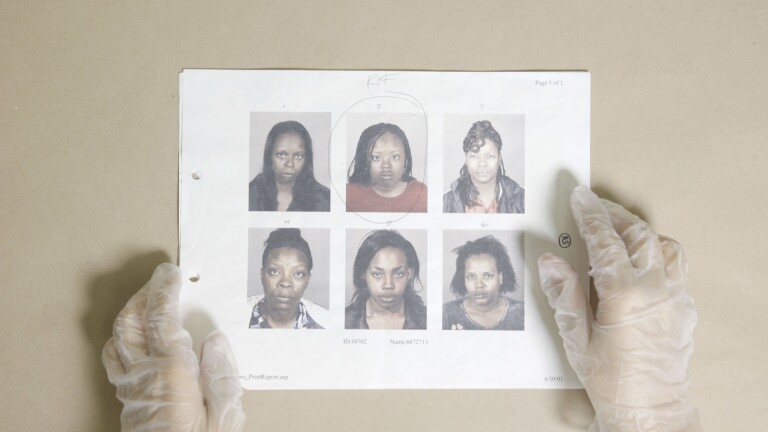
Diversity and Job Opportunities
In Silicon Valley, the workforce and executive suites are predominantly white male. Will Silicon Beach offer more hi-tech job opportunities to women and minorities? Reporter Cara Santa Maria goes to South Gate where a school is training a group of diverse students computer skills. She also meets digital entrepreneur, Beatriz Acevedo, whose digital content company, Mitu, employs a predominantly Latino workforce in front of and behind the camera.
Transcript
Cara Santa Maria: Twenty miles from the epicenter of Los Angeles’s Silicon Beach, in a place we usually don't associate with LA’s high tech sector...is South Gate.
Hackathon Teacher: And just do NMP start again.
Cara Santa Maria: A hackathon weekend is underway at educational center.
Megan Dotson: The name kinda captures your attention, hackathon, so I was like, what's that?
Cara Santa Maria: What that is, is a competition among teams of computer programmers. In this case to build a digital site for the Latino community.
Hackathon Teacher: You got my bank account number, right?
Cara Santa Maria: What’s unusual about this hackathon is that so many of its participants are Latino themselves, not to mention that it’s taking place in South Gate, a city whose population is 92% Latino. Adriana Martinez says it’s personal for her because she grew up not far away in Boyle Heights.
Adriana Martinez: We have so much potential among our youth and just our people who live here who maybe don't have access to the Silicon Valleys or even the Silicon Beaches of the world.
Cara Santa Maria: A big goal was to mix the usual suspects, white male computer programmers, with coders from diverse ethnic backgrounds and young women.
Cara Santa Maria: Why Southgate?
Gregorio Rojas: No one throws hackathons in Southgate.
Cara Santa Maria: Software engineer Gregorio Rojas and his wife Illiana organized the event.
Gregorio Rojas: No one from technology would think to go in there, to go and code there, to recruit from there.
Cara Santa Maria: The Rojas’s started an intensive developer bootcamp called Sabio, with a special focus on training women and minorities for the high tech sector.
Gregorio Rojas: We happen to be in one of the biggest cities where they have the largest population of Latinos, and we need to be a part of the workforce, and right now that’s not happening. An industry that prides itself on innovation is so adverse to diversity. They like what is comfortable. They like what they know, they fear what they don't .
Tessa Harp: With longitude, it’s in intervals of 180 to...
Cara Santa Maria: Tessa Harp is a student at Sabio. She never thought she had the knack for a tech job.
Tessa Harp: I realize, I kind of like this, maybe, I'm kind of good at it. Started looking into it more and now I'm here.
Cara Santa Maria: Do you think that's a common experience for young women, that they don't even see this as being a field that's open to them?
Tessa Harp: Yes. I think there's a lot of different reasons why some, maybe men, are more the dominant here. But for me, I just thought, maybe I'm not even intelligent enough to do that. I didn't even, I mean, when you think of coding I think of Facebook and them being extremely intense doing their code so I was 'oh that's not something I'm capable of doing' then you realize 'oh yes I am.'
Gregorio Rojas: So from here you can actually change
Cara Santa Maria: Sabio charges 14 thousand dollars for a six month program, but Gregorio says it’s an important investment in one’s vocational future.
Cara Santa Maria: When we talk about barriers to entry, what are we really talking about? Is it education? Is it socioeconomic status? Or is it just cultural?
Gregorio Rojas: If you're not a man, if you're not a white guy, who came from the particular background that we want you to come from, for no particular reason, you're just not welcome.
Cara Santa Maria: Recent Sabio graduate Kayla McKinney knows this all too well. Before signing up at Sabio, she dropped out of school.
Kayla McKinney: I was the only black girl in my college, in my program, I felt like I had to be perfect. Sometimes being the only female in rooms you kind of want to disappear. It kind of made it harder to learn because it wasn't really a welcome space.
Cara Santa Maria: Even before she graduated from Sabio, Kayla got an offer to work as a software engineer for Venice-based digital company “JibJab.” It’s a job she loves. She now creates content for its children’s app.
Cara Santa Maria: Kayla says she's often the only African American woman in the room, as she was at a recent hackathon.
Kayla McKinney: I think, I mean for me, that's fine, I like being a role model. But I hate that it's kind of forced on me and forced on other people that have to be role models, they have to be spokespeople for their race or their gender. I don't think that's fair.
Cara Santa Maria: It’s no surprise the tech sector is dominated by white and Asian men. And a Federal report shows just how dire the problem really is. In Silicon Valley's high tech workforce only 7% are African American, 8% are Latino, and 36% female. And get this: over 83% of executives are white. No one has gathered hard numbers yet for Silicon Beach. So it’s unclear if LA tech is similar. One place that’s breaking the mold is mitú. It’s a digital media company focused on the fast-growing Latino market.
Beatriz Acevedo: If you don't pay attention to us, there is no way your company is going to thrive or survive in the future. It's just by numbers. you don't need to be an analyst, just look at the numbers, in California, in New York one in every 2 kids born today are Latino.
Cara Santa Maria: Beatriz Acevedo is the founder and president of mitú.
Cara Santa Maria: Do you feel like the Latino consumer, especially the millennial Latino community is an untapped market?
Beatriz Acevedo: Oh yes, that's why mitú has grown so fast.
Beatriz Acevedo: And this is our production department...
Cara Santa Maria: Launched only four years ago, their content gets two billion monthly views worldwide, and their staff is 95% Latino.
Beatriz Acevedo: It's hard to think that in a city like Los Angeles you're not going to find talented Latinos in any area you want to. We have no issue finding tech people, coders, writers producers directors.
Cara Santa Maria: mitú’s most popular videos are the comedic “Cholos Try” series.
Actor 1: Kale Chips?
Actor 2: Ugh.
Actor 1: I mean it doesn’t smell that good.
Actor 3: No for real
Actor 2: No it don’t make you want to be, it’s like.
Actor 4: I like it now. I don’t like it at first, but I like it.
Cara Santa Maria: mitú also has a serious side..
Woman 1: Having that essence and keeping that essence with us.
Woman 2: Latinos are a driving force, for what happens in this country
Boy: I'm just proud to be Latino.
Announcer: mitú
Beatriz Acevedo: I heard a lot of Latinos during my career, that nobody gives us an opportunity, nobody opens doors for us. I'm not dismissing that reality, yet today, if you have a phone you have an opportunity right? So, it's a very different place than it was ten years ago.
Cara Santa Maria: Do you think the work you do is moving the needle in the LA tech scene?
Beatriz Acevedo: We want to move the needle. We’re in the process. Have we accomplished it yet? No.
Gregorio Rojas: If you’re interested in becoming an entrepreneur and just coming out here and building your own stuff, no problem.
Gregorio Rojas: Here in LA I can tell you that we stand alone in this effort. We stand alone. And that is not progress. I can't tell you how many photo opps I go to where I am literally a token to take a picture with. Because someone of import decides that hey're going to do something for minorities in technology and I get to be in a picture with them.
Cara Santa Maria: Isn't it kind of a double-edged sword? Isn't it good to role model in that way?
Gregorio Rojas: So, you’re right, it's a double-edged sword. So on one side absolutely it's great to put more of our faces up there, to see more women and more people of color. Absolutely. But the other side of it is that, again people think that there's progress because of it, and there isn't.
Cara Santa Maria: And given the growing Latino majority, the greatest untapped resource in LA tech could just be its diversity.
























